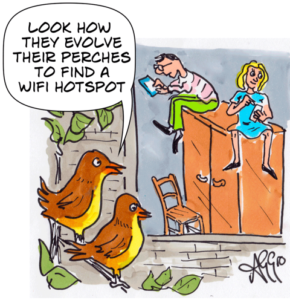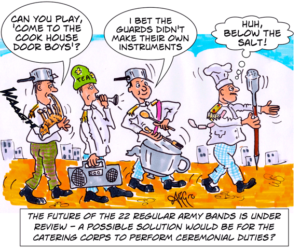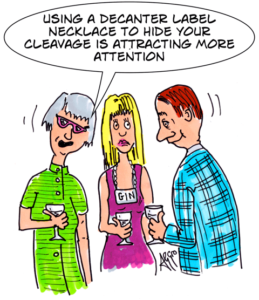07 December 2017
Lens on the Week
UK

AN IRISH KNOT: Forget when and what the DUP knew. Forget whether the choreography of Mrs May’s meeting with Mr Juncker was premature. The problem of the Irish border which currently bedevils the Brexit negotiations is a real one and the best way to disentangle the strands is to look at the positions of the various parties in relation to the proposal taken to Brussels by the Prime Minister.
The idea was that to avoid a physical customs border between Northern Ireland and the Republic, Northern Ireland would remain part of the EU Customs Union. That did not work for the DUP, a party committed to ensuring that Northern Ireland remains part of Britain and keeps a little distance from its southern neighbour. If there is to be no customs barrier between the two parts of Ireland then there has to be one between Northern Ireland and the rest of the UK, pushing the North and South together economically. You don’t have to be a member of the Orange Order to see why the DUP don’t like that.
In Scotland too this solution has dangers. Never slow to propose anything which divides Scotland from England, Nicola Sturgeon has been swift to jump on the bandwagon. She says that Scotland too would like a special deal under which it remains in the EU Customs Union. That would involve a customs border with England but, turning the DUP’s position on its head, the SNP see a land border as an advantage. It is not as good as a Trumpian wall of course, but still anything which opens divisions with the hated Sassenachs must be good for a leader on the defensive about her domestic record.
Scots Tory leader Ruth Davidson sees the danger and is against any split in the UK. She is supported by the Brexiteers. They say that Britain should be free to do its own trade deals and that means that it must be able to negotiate as a single unit.
Meanwhile in Southern Ireland they are anxious not to see the reappearance of the physical border which disappeared with the Good Friday agreement and, as they have a veto on any deal, they are in a position to make themselves heard. Still, they will come under increasing pressure from Britain and the EU, both keen to move on to trade discussions, and will not wish to scupper things completely; a no-deal Brexit would damage the Southern Irish economy as well as those of the UK and the rest of the EU.
If, as seems likely, the special status for Northern Ireland as a member of the EU Customs Union is as dead as the Dodo, the problem becomes a mechanical one. How do you prevent goods moving duty free between the EU and the UK across the Irish land border? Perhaps there could just be a restriction on the movement of goods in commercial quantities, but it would be leaky and hard to enforce. In any case it is hard to design it until the terms of the trade agreement between Britain and the EU are known, and discussion of that will not start until progress has been made on the border issue.
So what will we see next week? A fudged proposal for a border that half works? A new idea which cuts through the knot? Or a total collapse of negotiations? Place your bets on the currency markets if you enjoy a good flutter!
JUST NOT CRICKET: England leave their vice-captain at home and, whoops, there go the Ashes. Hopefully those who thought that banning Stokes from the whole Ashes tour while the CPS considered whether he should be prosecuted over his nightclub incident are now getting nervous. If he is not prosecuted they are going to look a little stupid. So, of course, will the CPS for taking so long, so no doubt we can expect a half-baked prosecution followed by an acquittal.
Meanwhile there are allegations that Damian Green, effectively Mrs May’s deputy, viewed pornography on his computer. He denies having done so, but even if he had it is not suggested that a criminal offence was committed under the law as it stood. Nor that it would in any way have affected his role in the Government. It is important that a crucial member of the cabinet “team” is not undermined as a result of unsubstantiated allegations irrelevant to his performance. After all, to lose the Ashes is one thing……
Cressida Dick, the Metropolitan Police Commissioner, has suggested that the officers who revealed confidential information about Mr Green to the media should be prosecuted. Assuming they did so, that sounds about right.

International
NORTH KOREA: North Korea fired an intercontinental ballistic missile towards Japan last Wednesday – the first since mid-September. Experts agreed with claims by the state media that the test proved that such weapons could now reach any target in the USA. The state media also announced that the test completed Pyongyang’s nuclear weapons development programme, and a Russian delegation (returning from North Korea) said that Kim Jong-un would now be prepared to negotiate an end to the crisis if the US formally recognised North Korea as a nuclear power. Perhaps a place at the table with the grown-ups was all that he wanted from the very beginning. Will he be given it? Should he be given it? After all, a child armed with a machine-gun would be less dangerous and easier to control if he were sitting with responsible adults rather than running around in the playground.
THE CANARY OF GAY RIGHTS: During a debate in the Australian parliament on legalising same-sex marriage, the gay MP Tim Wilson proposed to his partner Ryan Bolger (he said yes); a referendum recently voted in favour of gay marriage. In Turkey, Istanbul’s gay pride rally has been banned for the third year in a row, and a festival of German-language gay films was banned in Ankara last week, followed by a blanket ban on all gay cultural events this week. In Russia, customs blocked the import of a Warwick University rowing club charity calendar because it infringes the country’s “gay propaganda” laws; it features naked rowers, and is published in aid of LGBT charities. The rowing club was also the target of an allegedly Russian-based cyber-attack. Even in the twenty-first century, a state’s attitude towards its gay citizens remains a good test of its attitudes towards all its citizens. If a caged canary died of asphyxiation in a coal-mine, it was a warning to the coal-miners that they themselves were in danger of asphyxiation; if a state tramples on the rights of its gay citizens, it’s a warning to all other citizens that the state would be prepared to trample on their rights too.
SAUDI ARABIA: It seems that Saudi Arabia may have miscalculated in the Yemen, where it’s leading a Gulf coalition in support of President Hadi at war against an alliance between the Houthi rebels and ex-President Saleh. No doubt encouraged by Riyadh, Saleh announced that he was prepared to negotiate with the Saudi coalition. Riyadh may well have been hoping that Saleh would join them in crushing the Houthi rebels (Saleh had form in changing sides) – but the Houthi rebels turned the tables by hitting Saleh’s forces hard and fast and bombing his home in Sanaa. Saleh escaped from the city but was stopped at a Houthi road-block and shot dead. See comment A Bad Time For Bad Guys (Part II).

Financial
SOUNDS GOOD: It pays to be nice to people; the reward may be delayed but it often turns up in the end. So it proved when the Cavendish Laboratories at the University of Cambridge provided a home and support to a Californian electronics engineer doing postgraduate research between 1957 and 1961. His name was Ray Dolby; although he went back to San Francisco after his time in Cambridge he did not forget the friendship and help he had had. In 1965 he founded Dolby Laboratories which became the world leader in sound technology; by the 1970’s any hi-fi worth listening to used Dolby noise reduction sound recording technology to enhance and more accurately reproduce sound. Not just that, Dolby was a major contributor to reviving cinema by enhancing film sound tracks (that took a little longer to come through as the struggling cinema chains had to re-equip their picture houses with reproduction kit and speakers that would do justice to the Dolby soundtracks).
Ray Dolby became a rich man through improving the quality of noise; he died in 2013 aged 80. But his legacy will subsist in Cambridge; his estate has just announced the gift of £85m to the Cavendish to help build a completely new laboratory building for the complex, part of which will be known as the Ray Dolby Centre, to enable it to play a leading role in technology development in the C21st. Construction at that level is expensive – the final bill is likely to be around £300m, of which Cambridge University is adding £75m to Mr Dolby’s benefaction, and the government another £75m of taxpayers money. Cambridge hope that other donors will come forward with the remaining £65m, but even if they do not the University has said they will fund the gap – the role of the project is so key to maintaining Cambridge’s world leading status in technology development.
CONFUSION ON THE HIGH STREET: The game of winners and losers in the British retail business continues to bemuse. Certainly furniture does not seem to be a good thing to be in at the moment, with Multiyork – sofa purveyors to middle class home owners – and Feather and Black, appealing to the same type of purchasers’ more general furniture requirements, both going into administration recently. Both firms are owned by the Wade family and blame a rapid deceleration in consumer spending, linked both to economic uncertainty and a slow down in house sales. Their problems are bad news for British manufacturing, the firms are some of the last to make much of the mass furniture that they sell in the UK and employ around 900 people on sites in the Midlands.
No such message from Edinburgh Woollen Mill Group, not just the eponymous chain of stores, but also owners of Jaeger and Austin Reed, upmarket clothiers, and of Peacocks and Pondon Home, retailing all types of discount fabric based items. The group is owned by Philip Day, who is about to really kick modern trends by starting a new chain of department stores which will stock the company’s own brands and some others. Mr Day says although competition remains “intense” all his brands are trading well and sales rose nearly 3% to just under £600m, giving operating profits for the year of £91m (before currency write offs of £8m). This was for the year ended February 2017, it should be said. Mr Day says things are still satisfactory; he says the secret is to emphasise with what the customer wants, at the right price, and have strict cost controls at all points in the process. He makes it sound easy; Mr Wade is probably ruefully saying it isn’t so easy as all that.
If you enjoyed this post please share it using the buttons above.
Please click here if you would like a weekly email on publication of the ShawSheet

